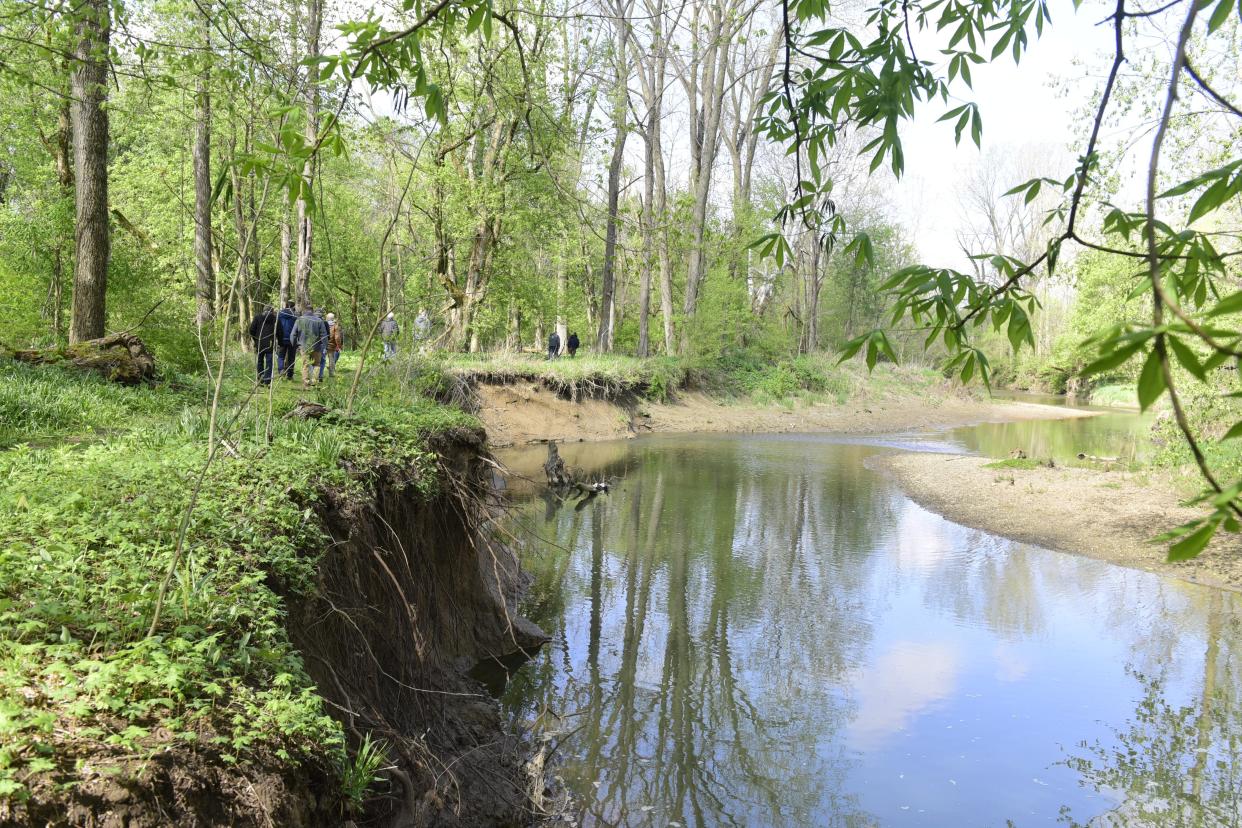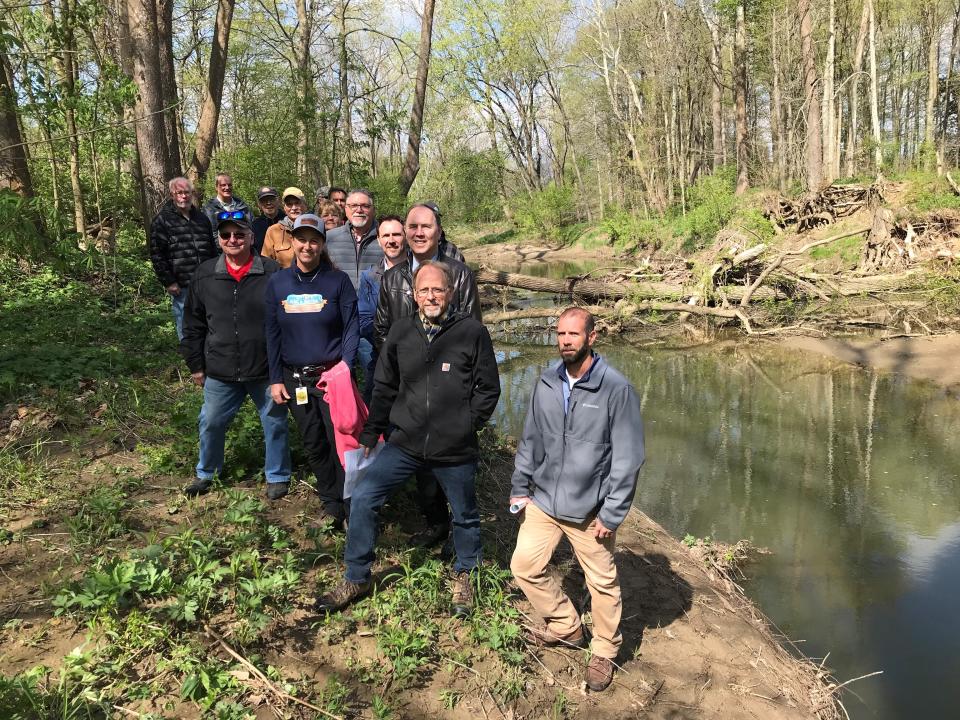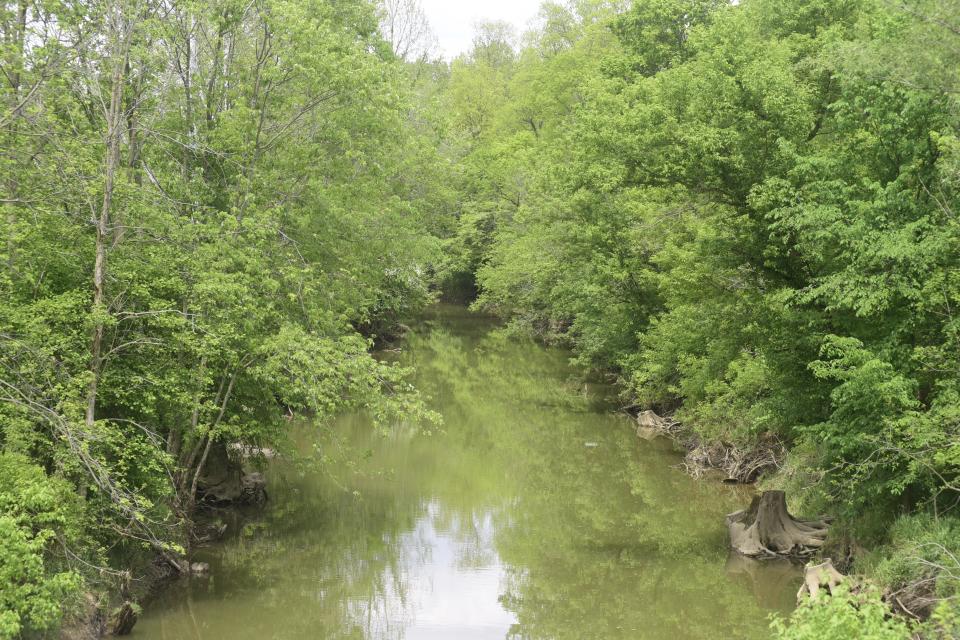Residents call for commissioners to maintain long-term health of Black Fork River

A group of concerned friends walked along the bank of the Black Fork River as it wound its way through a forest on the north end of Shelby.
They stopped where a large tree had fallen across the river to create a natural dam that grew as limbs and debris became caught in the branches.
It's one of several obstructions that have appeared in the river during the five years that have passed since the friends mounted a private effort to clean 18 miles of the Black Fork between Mickey Road in Shelby and the bridge near the intersection of Ohio 96 and Ohio 13.
The growing logjams are a sign that commissioners from Richland and Crawford counties need to maintain the cleanliness of the waterway, according to John Schroeder, a Shelby farmer who helped organize the "Black Fork Clean-Up Project."
He is worried commissioners from the two counties won't realize just how important their votes are when they meet May 11 to discuss the river's fate.
"It's not an option not to happen," Schroeder said. "It's got to happen."
'Responsible stewardship of a most valuable natural resource'
The group who gathered the last week of April to survey the Black Fork consisted of elected officials, businessmen, farmers, technicians, and locals who have lived along the river since the middle of the previous century.
Each was aware that flooding has been a problem in Shelby since the late 1800s, and that at least a dozen major floods have threatened lives, destroyed businesses and washed away homes.
Those in 1987, 2007 and 2011 were the highest, with the 2007 event considered the city's flood of record.
For most of the mid 2010s, officials worked with the Muskingum Watershed Conservancy District on a plan to reduce flooding along the Black Fork. By June of 2018, though, Richland County commissioners finally walked away from flood mitigation plans that would have cost the county's tax payers as much as $80 million.

That's when officials turned to Schroeder, who had been working on private efforts to clean the river since May of 2017 — the private residents raised more than $300,000 for the cleanup, which consisted of hiring a company that used heavy machinery outfitted with grapple hooks and winches to pull hundreds of trees out of 18 miles of the river.
To make sure the hard work was not lost, Shelby Mayor Steven Schag filed a ditch petition in February of 2021, requesting that commissioners from Richland and Crawford counties raise money to continue the cleaning and maintenance of the 18-mile stretch of river by forming an assessment to properties in the watershed.
Two years after filing that petition, and two weeks before its fate is decided, the mayor stands behind his request.
"It is a benefit to individuals upstream and downstream," Schag said. "Large logjams and the like only produce negative impacts for citizens and wildlife as well. A well-maintained river stream allows our busy crews to attend to important initiatives all across the city of Shelby. I see the ditch petition as a means of responsible stewardship of a most valuable natural resource."
'You're going to have to do it again'
Keeping the river clean is good logic, according to Matt Wallace, agriculture technician for the Richland Soil and Water Conservation District.
"It's just like maintenance on your car," Wallace explained. "You have to replace the tires every so often. You have to replace the windshield wipers and your brakes. It may go two or three years before you have to do it again, but you're going to have to do it again. This is the exact same type of situation."
The initial cleanup five years ago worked because of basic science, the soil and water technician said as he stood along the river's bank.
Pulling all of the logs out of the river nearly doubled the riverbed's capacity to transport water, he explained.
"That allows that water to get downstream faster, carry any light sediment with it, helps keep the channel clear and keeps some erosion from happening," Wallace said.
When the water is flowing down the river, it's not backed up in downtown Shelby.
Backed up water, he said, must find a way around its obstruction. The moving fluid cuts out portions of the bank as it flows out of its normal path to get downstream. That rips up plants, leaving the river banks steep and bare, often exposing the roots of trees that are set back from the river.
"That energy is just redirected," Wallace said.
As he examined the river, the technician pointed out where the river water was rushing around an obstruction to erode the bank, then where the eroded sediment was building up in the middle of the river to help form another obstruction.
It's a cycle that continues down the Black Fork River — a sign of an ill waterway.
"It definitely needs a prescription, that's for sure," Wallace said. "I wouldn't say that it's completely unhealthy, because it does have aquatic habitat in it. But it could be much healthier, that is absolutely for sure."
Cleaning the river again would be a step in the right direction.
"This is not a one-and-done type of situation," Wallace said. "This is going to be something that needs continuous maintenance, whether it's every year, every other year, or every five years. There's always going to be some part of maintenance, especially when you're looking at an 18-mile stretch of the river. There's always going to be something here that's going to need attention."
'We need the supporters there'
That message is one Schroeder hopes the six commissioners — three from Richland County and three from Crawford County — hear loud and clear before they meet May 11 to discuss the joint ditch petition.
The petition will not be voted upon May 11, Tony Vero, one of Richland County's commissioners, told the News Journal. Vero said the vote will take place on a future date after commissioners further discuss the matter.
The petition has been signed by the Shelby mayor and 68 property owners in the watershed. Of the 10,457 affected parcels, 164 are in Crawford County and the rest are in Richland County.
The petition could end up costing as much as $640,000, according to Erica Thomas, director the Richland Soil and Water Conservation District.
But that figure, she said, was presented by the Richland County Engineer before the Ohio Department of Natural Resources and the Environmental Protection Agency both asked for additional impact studies be done on the project.

"I also believe requestors for the project intend to change the scope of the project to only remove the logjams," Thomas said. "So I think the project costs may change after the May 11 hearing, depending on what is decided."
Concerned residents who want to be present when county commissioners discuss the petition are encouraged to attend at 5:30 p.m., May 11, at the Richland County Longview Center, 1495 W. Longview Ave. in Mansfield.
"We need the supporters there," Schroeder said. "Everybody benefits from this. Every gallon of water that leaves the town of Shelby goes down the Black Fork River. So, everybody should want to make sure that the channel stays clear of debris. That's all we're asking for. We're not talking about cutting down trees, we're talking about a debris-free river."
ztuggle@gannett.com
419-564-3508
Twitter: @zachtuggle
This article originally appeared on Mansfield News Journal: Residents call for approval of ongoing Black Fork River cleanup

